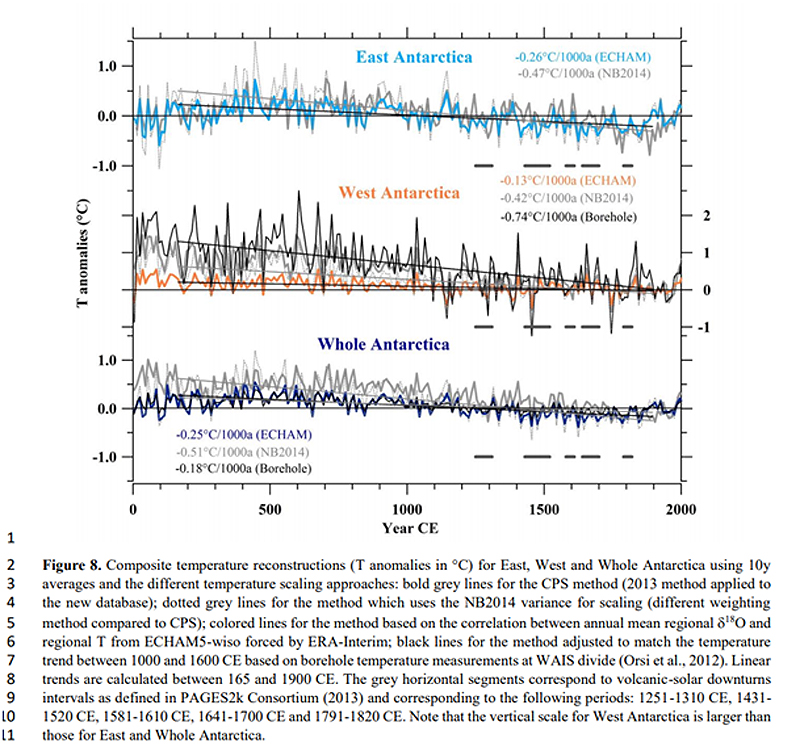Västantarktis har
blivit svagt kallare under de senaste 2000 åren. Det gäller även hela
Antarktis. Detta enligt mätningar i borrhål plus datamodelleringar.

Från https://www.clim-past-discuss.net/cp-2017-40/cp-2017-40.pdf
Under de senaste 100
en viss temperaturuppgång som inte är exceptionell jämfört med tidigare
århundraden. Tyvärr orkar jag inte översätta allt. Detta var inte
riktigt vad modellerna sa.
(1)
Temperatures over the Antarctic continent show an overall coolingtrend
during the period from 0 to 1900CE, which appears strongest in West
Antarctica, and (2) no continent-scale warming ofAntarctic temperature
is evident in the last century.
The robust and
significant long-term cooling trend of Antarctic-wide temperatures from
0-1900 CE is also reflected in thebroader East Antarctic and West
Antarctic regions. In East Antarctica the coldest interval occurs from
1200 and 1900 CE.
The absence of
significant continent-scale warming of Antarctica over the last 100
years is in clear contrast with the significantindustrial era warming
trends that are evident in reconstructions for all other continents
(except Africa) and the tropical oceans10
(Abram et al., 2016). As noted
in other studies (e.g. Abram et al., 2016; Jones et al., 2016) the
absence of continent-scalewarming over Antarctica is not in agreement
with climate model simulations, which consistently produce a 20th
Centurywarming trend over Antarctica in response to greenhouse gas
forcing. The high interannual climate variability with respect toDespite
the lack significant warming over the last 100 years at the continent
scale, there are three regions which show positiveand significant
isotopic and temperature trends: the Antarctic Peninsula, the West
Antarctic Ice Sheet and the coastal DronningMaud Land.